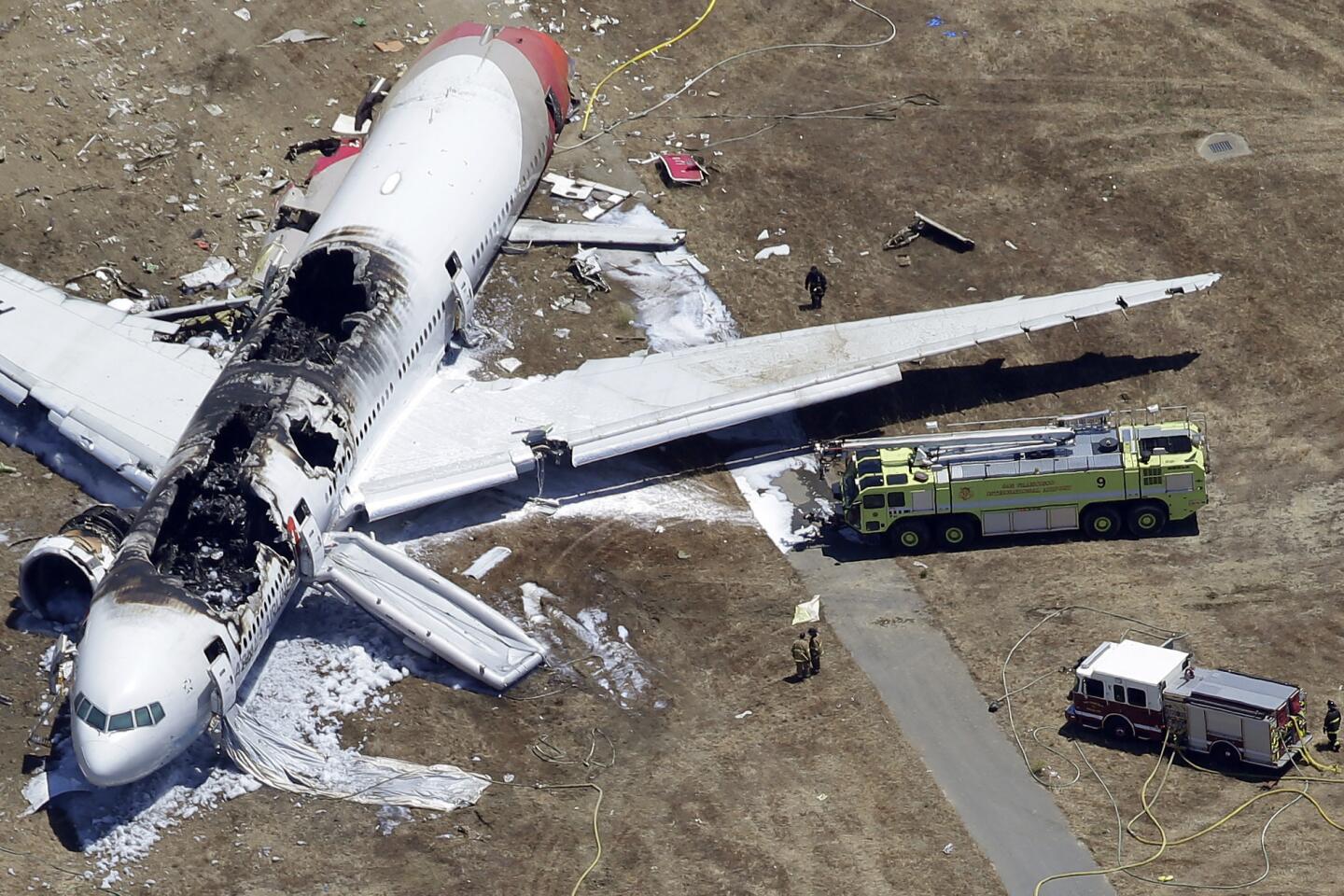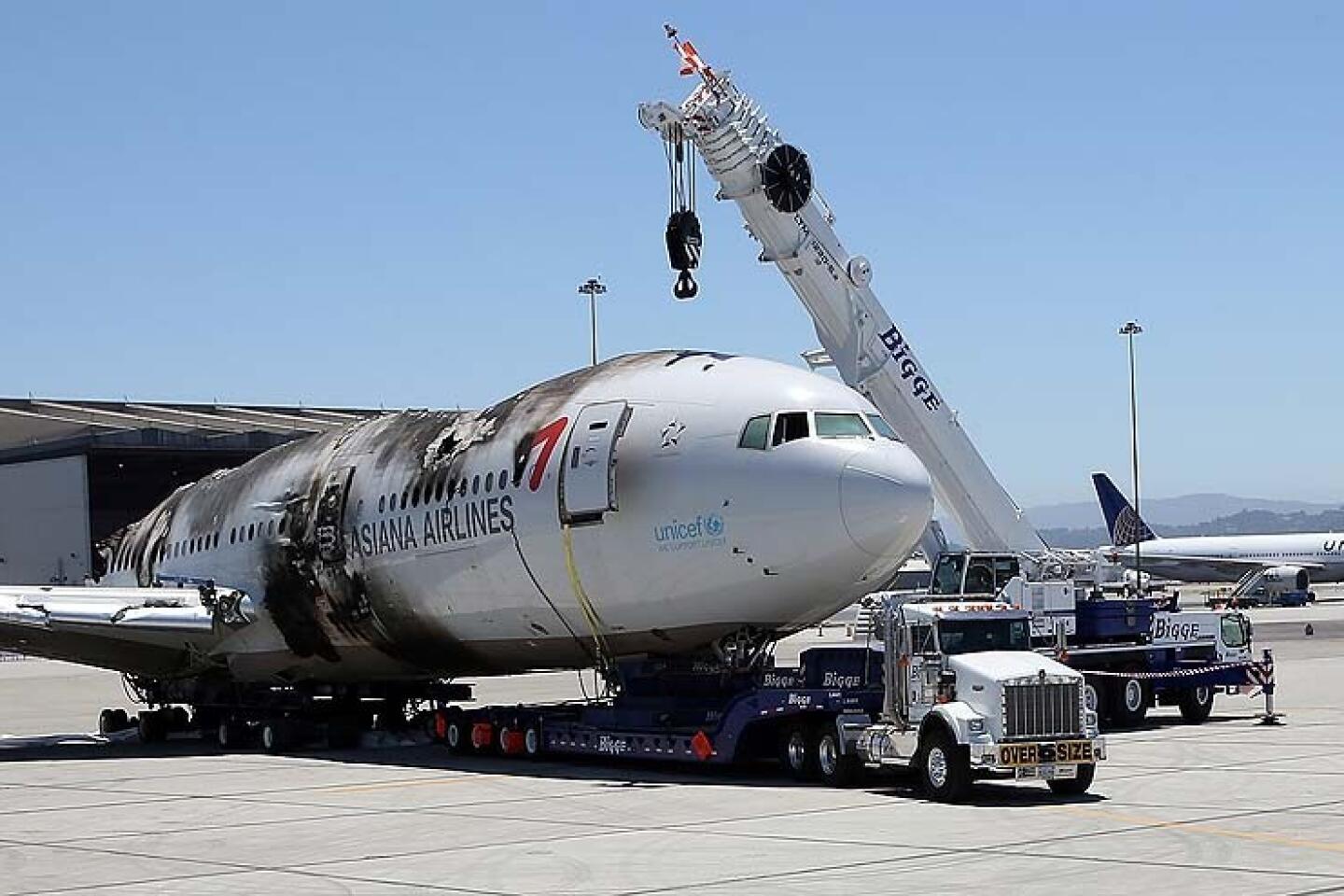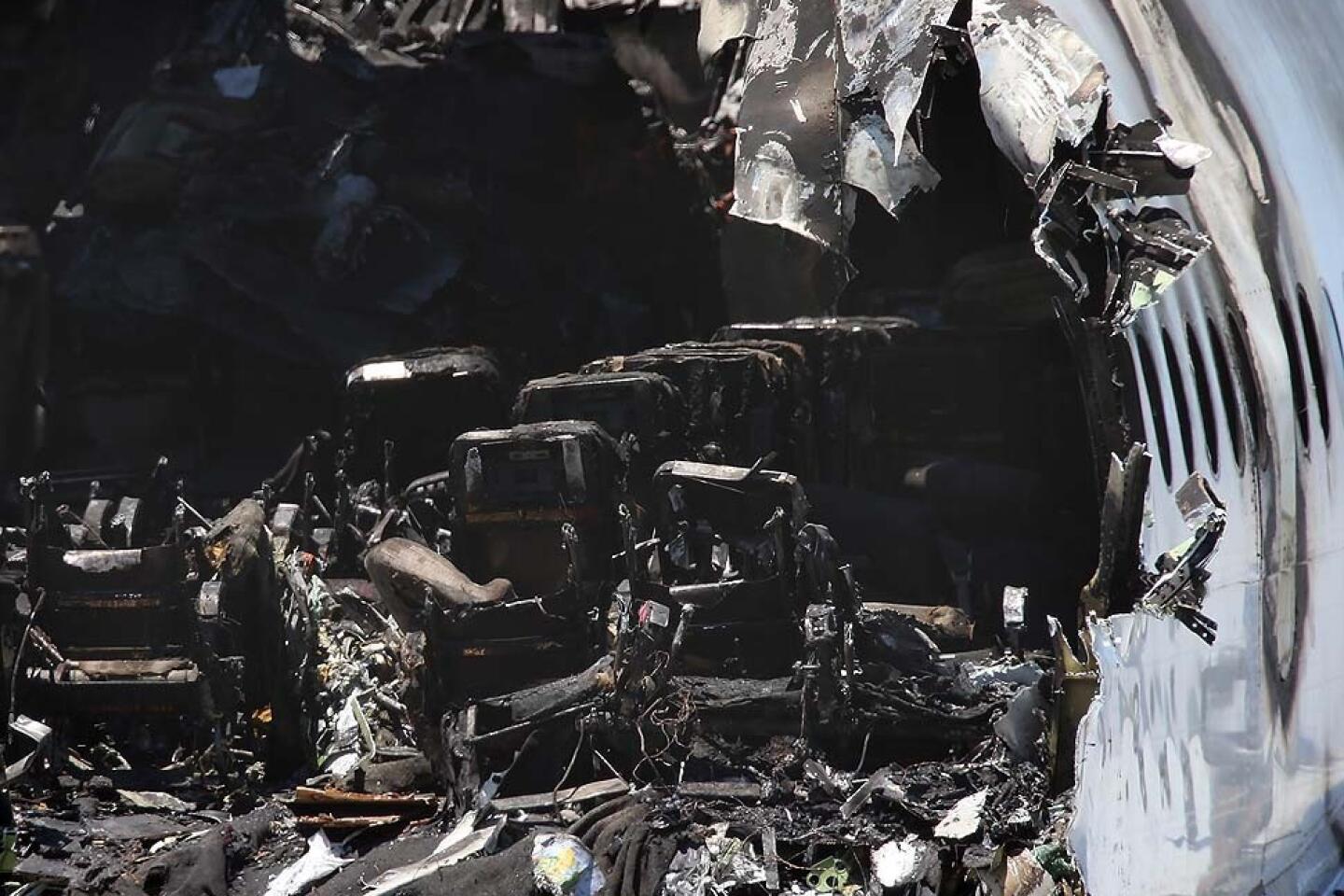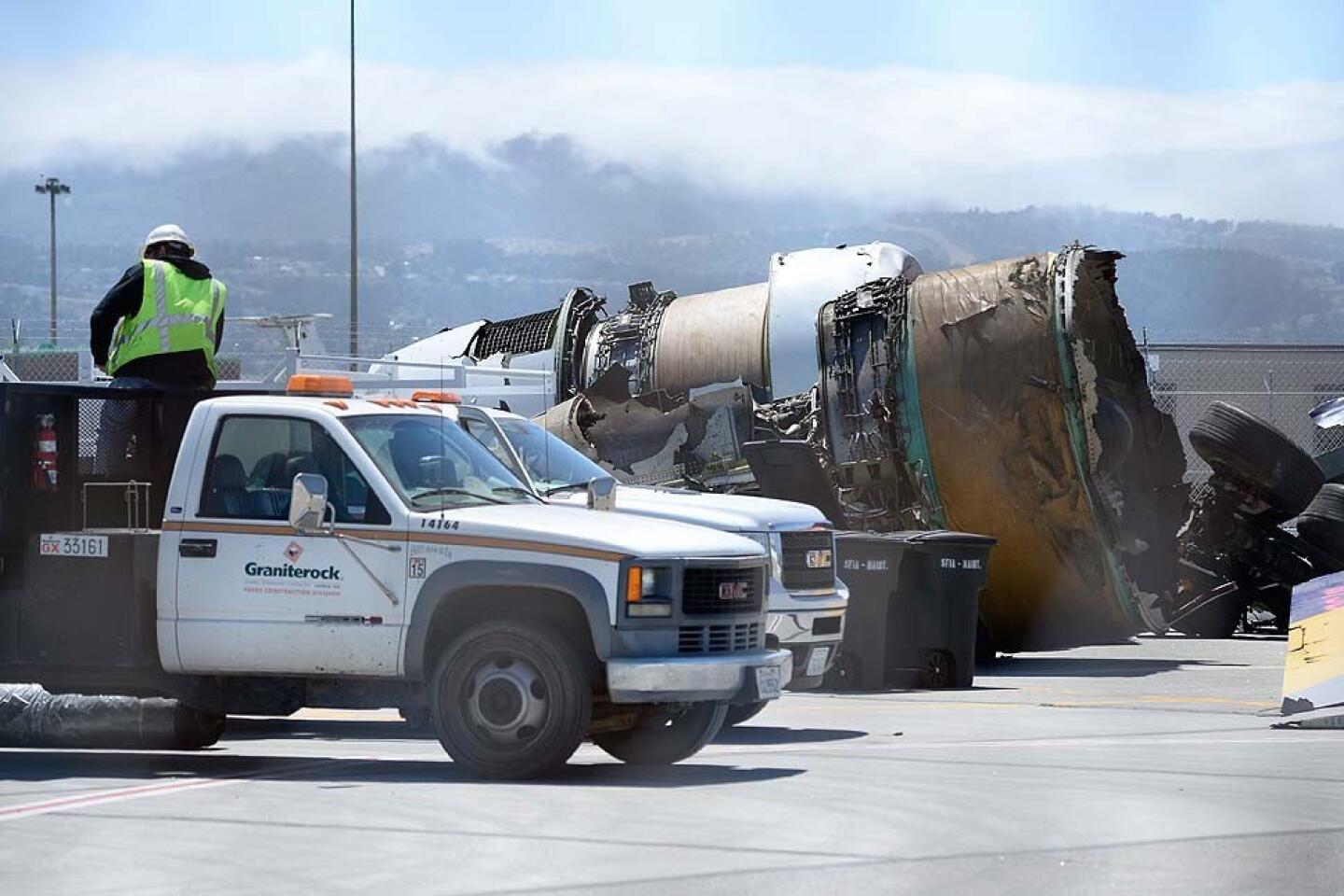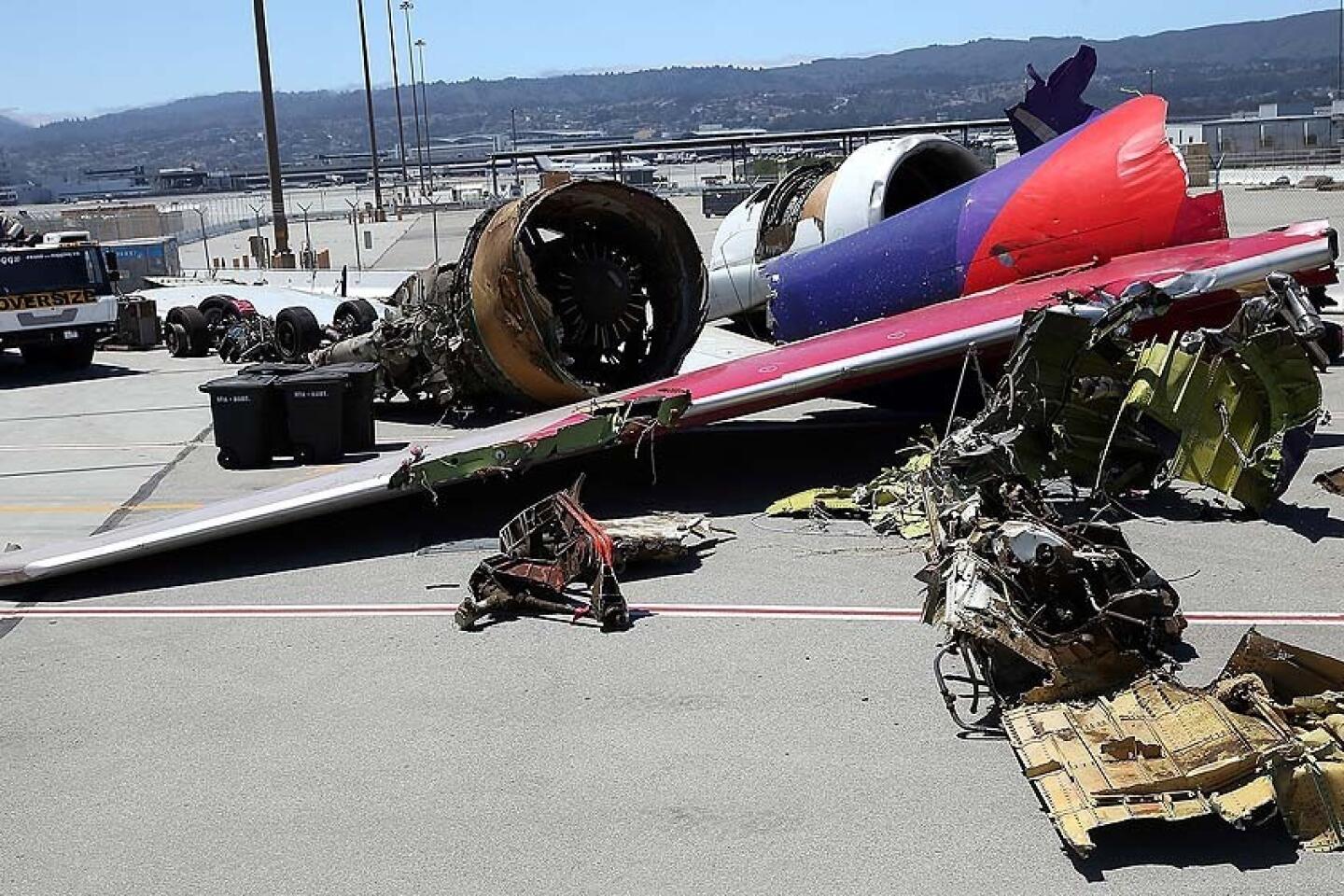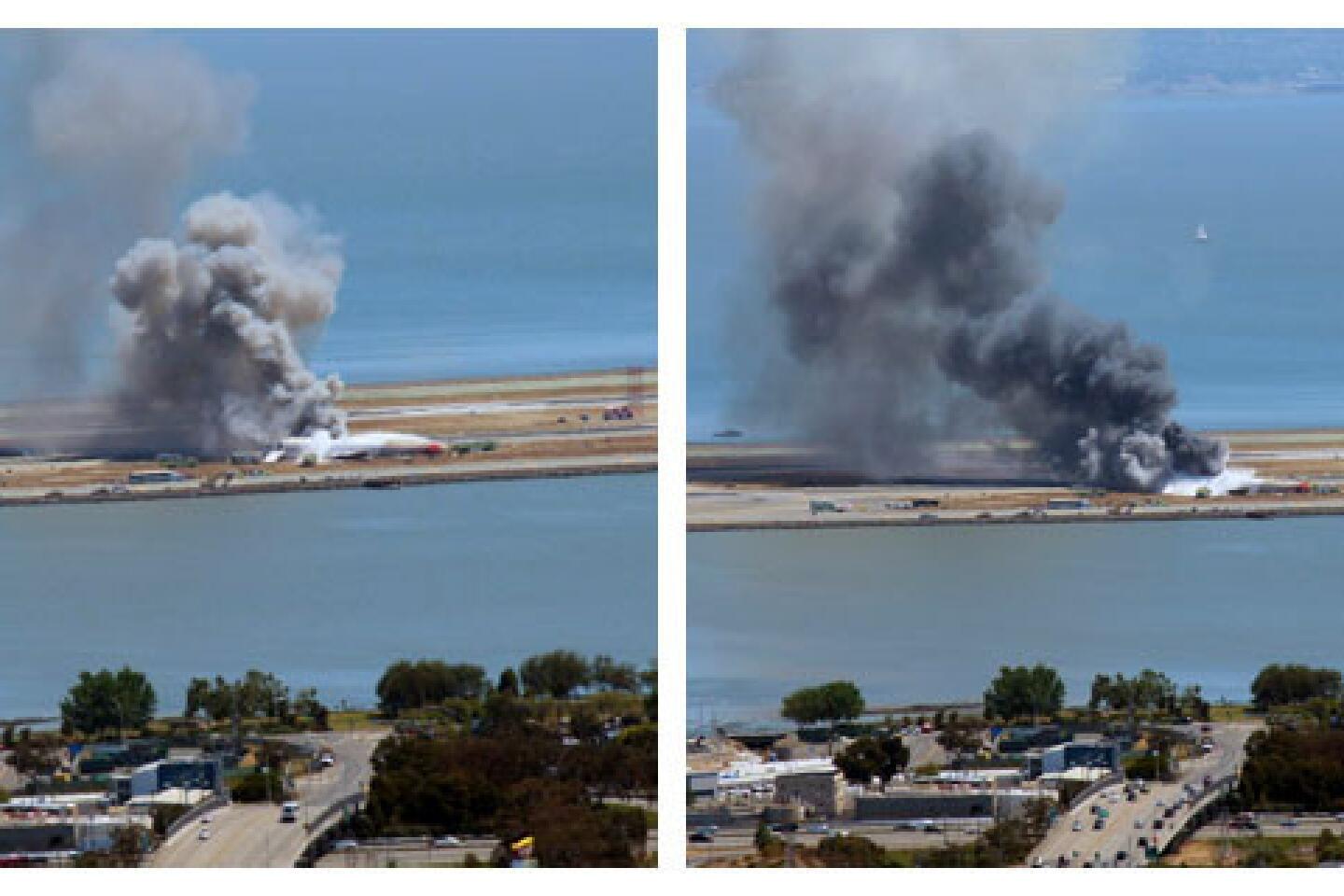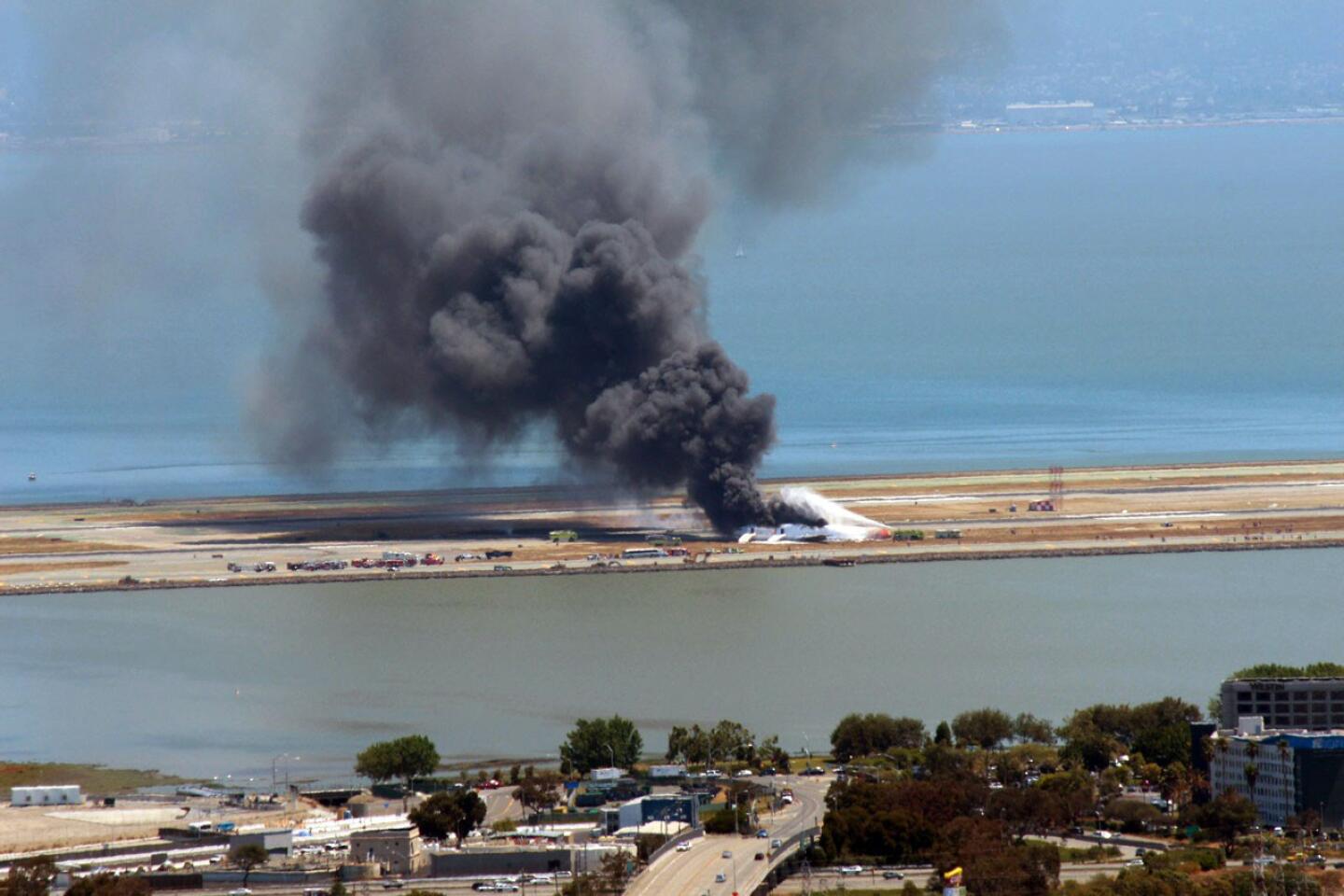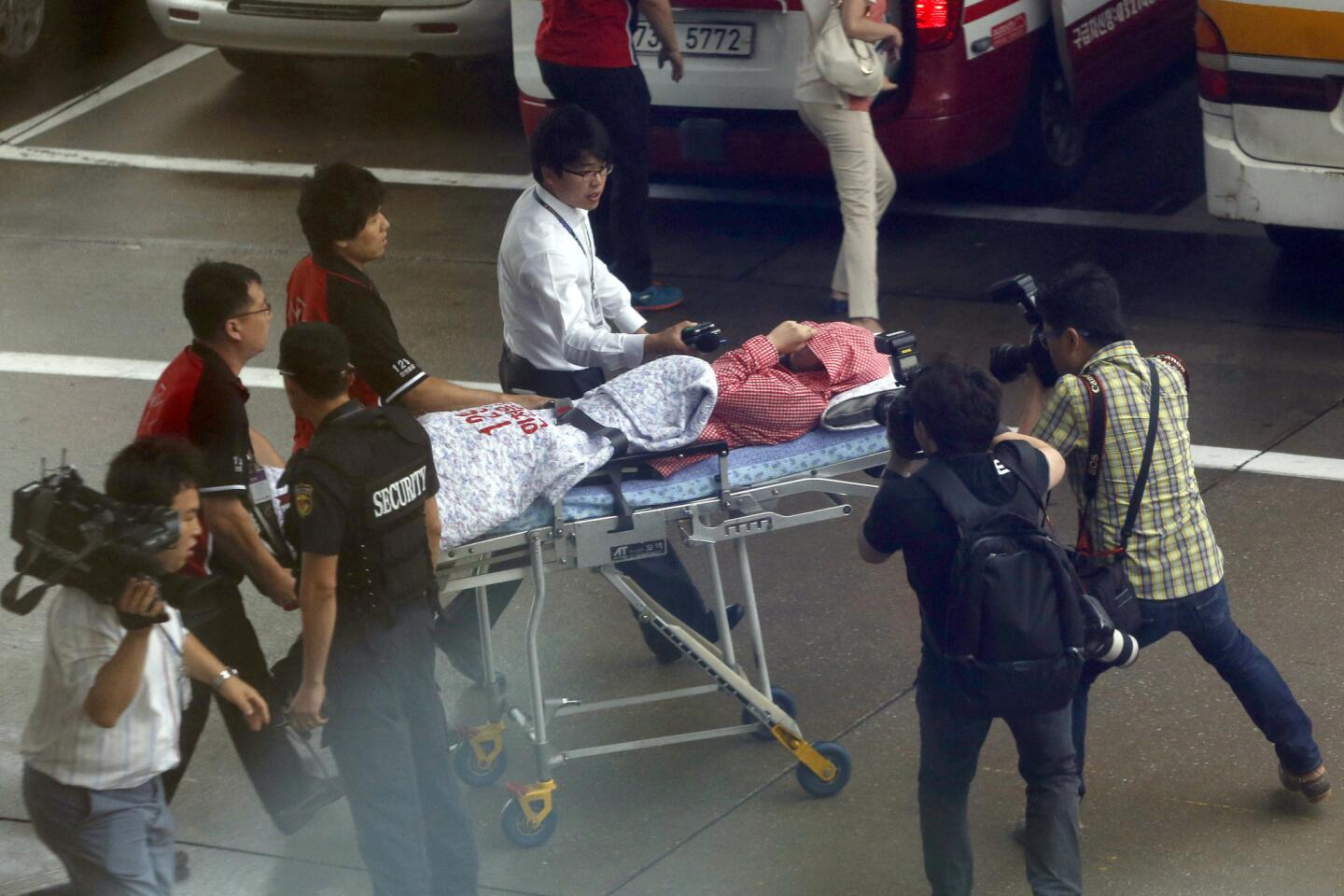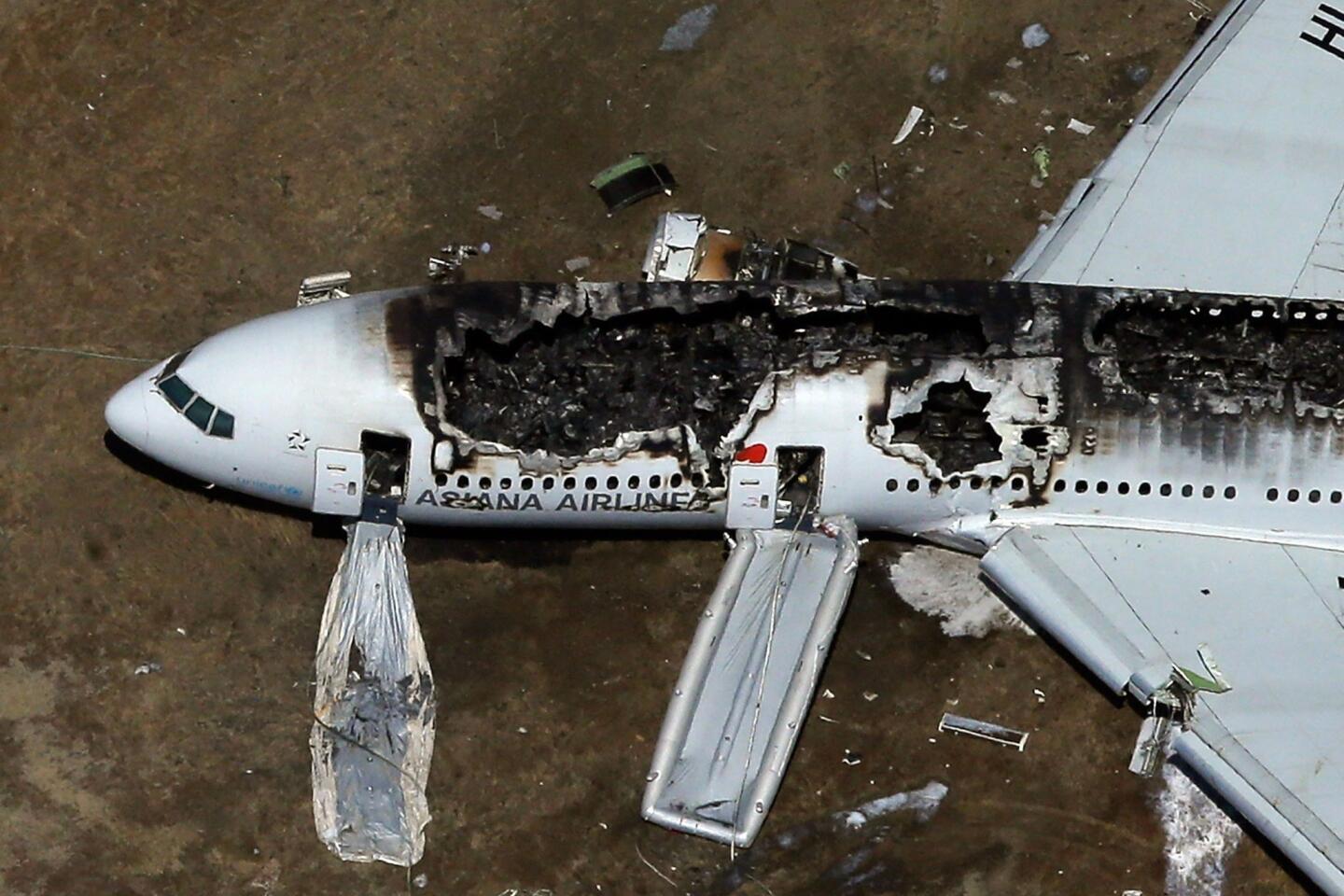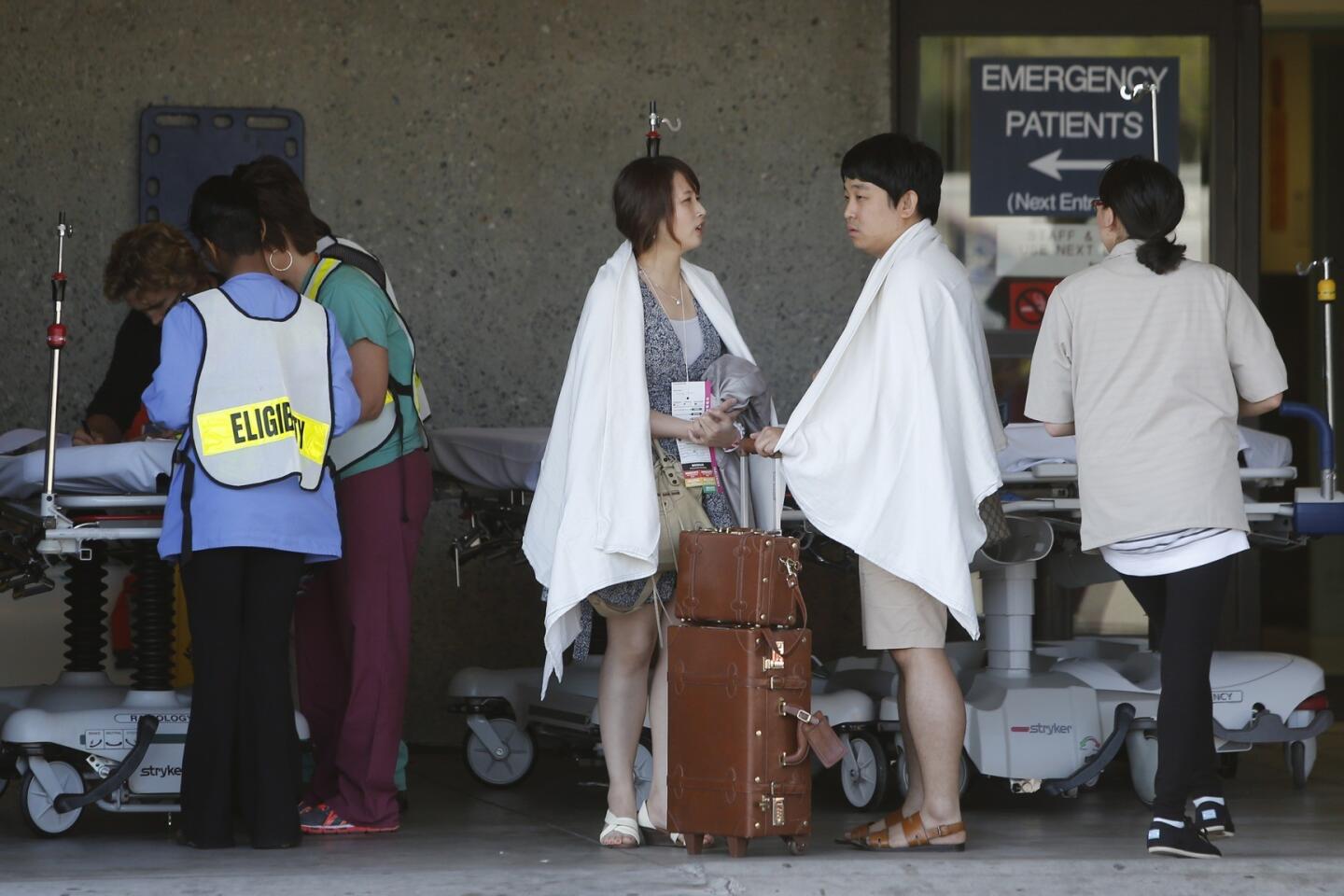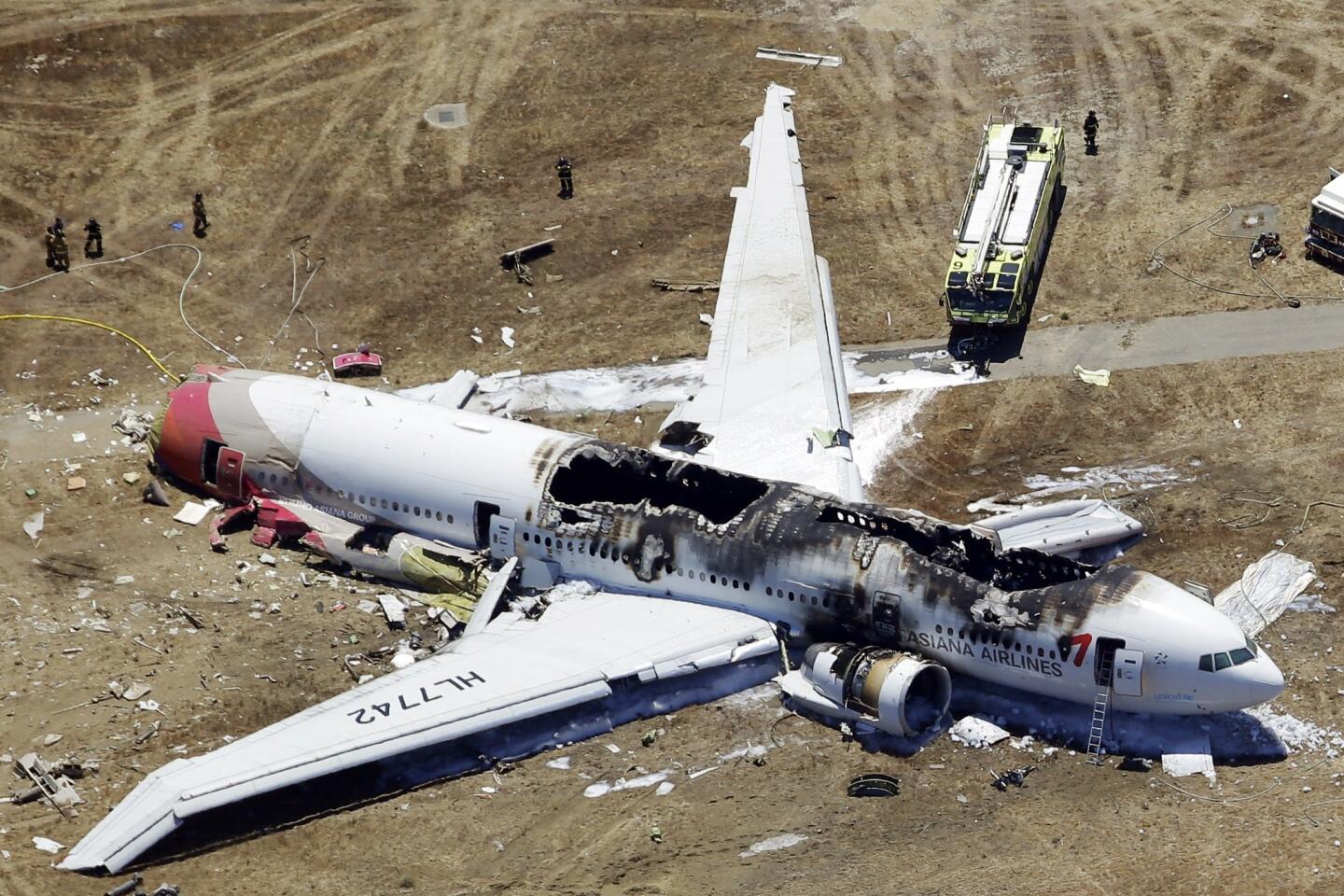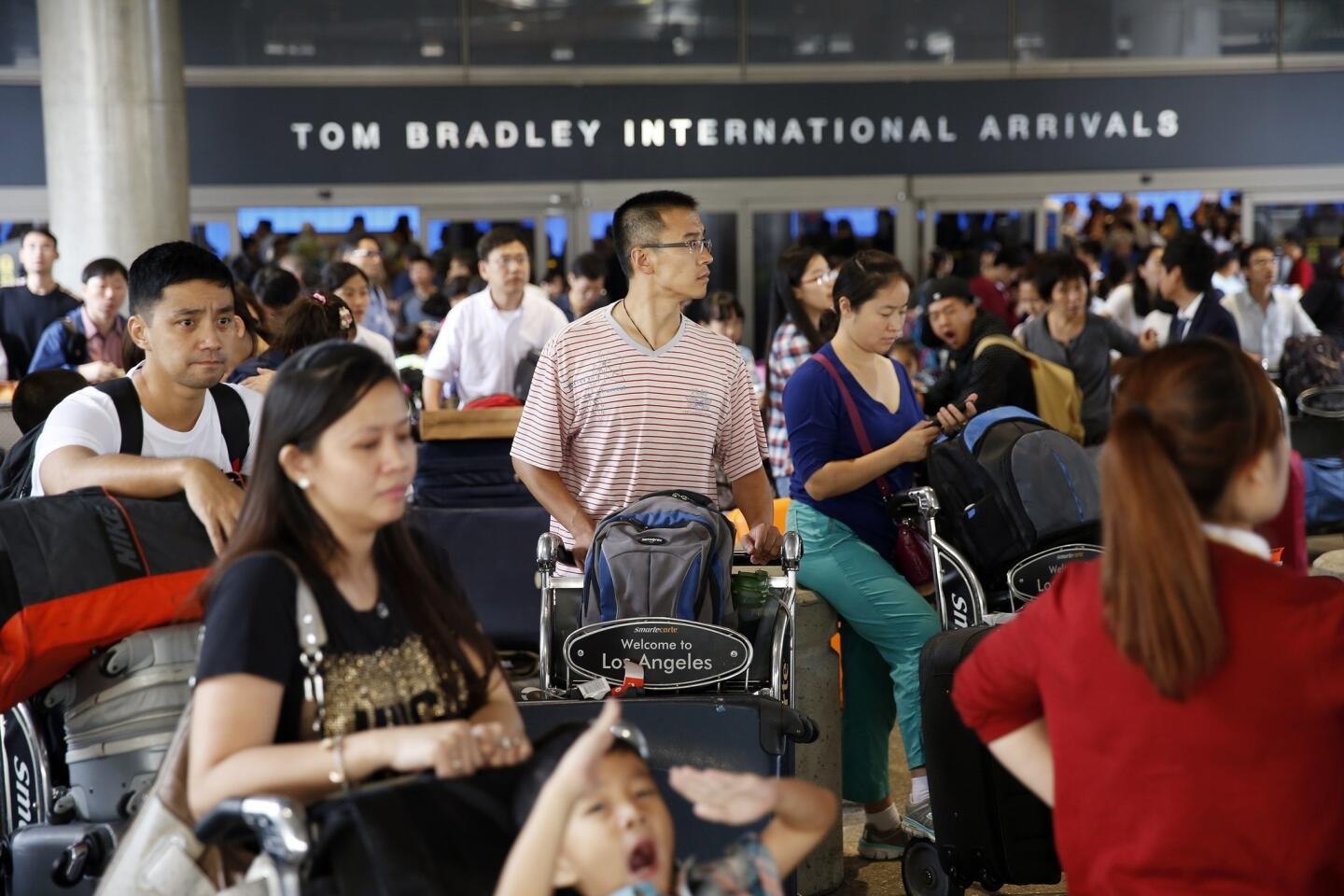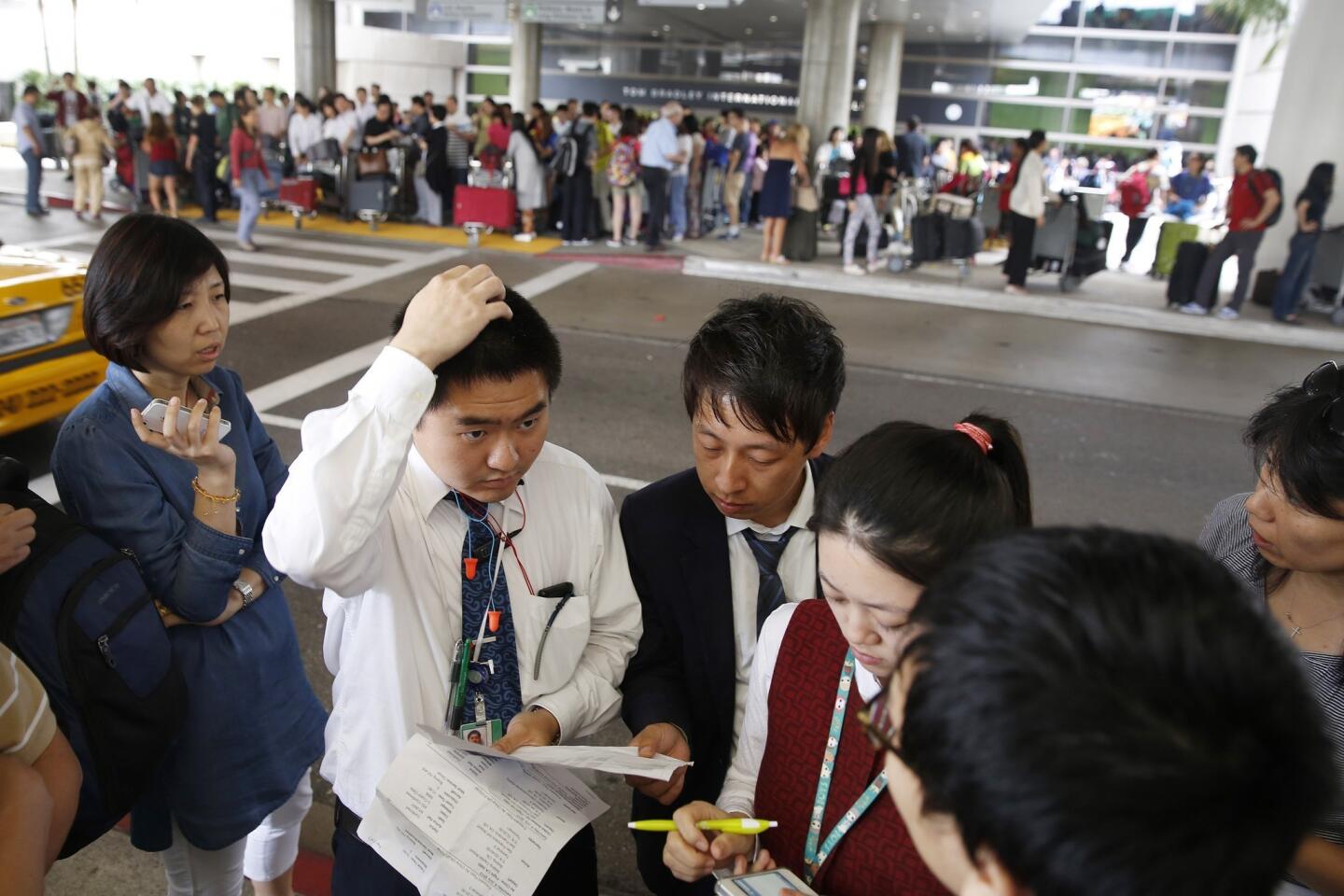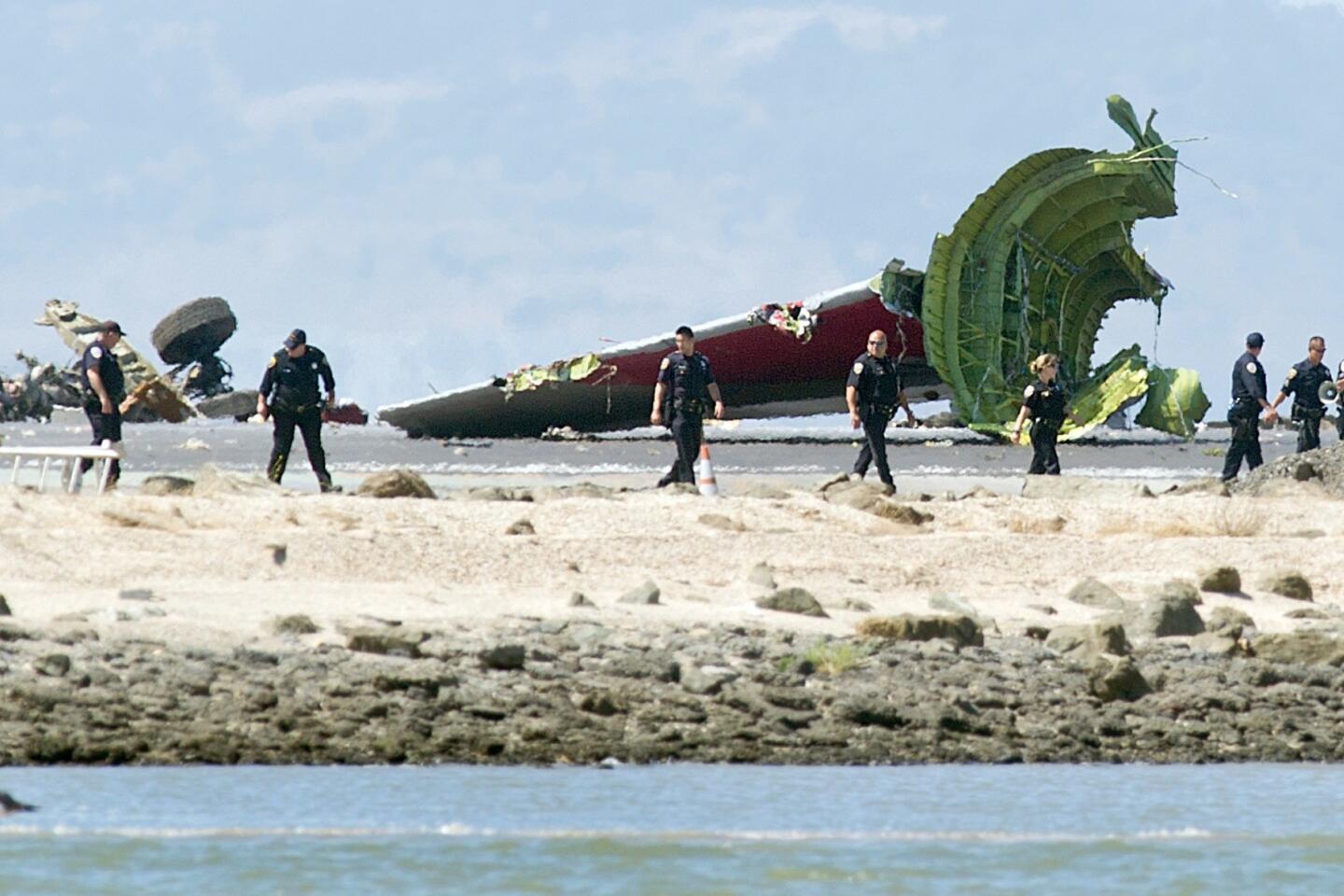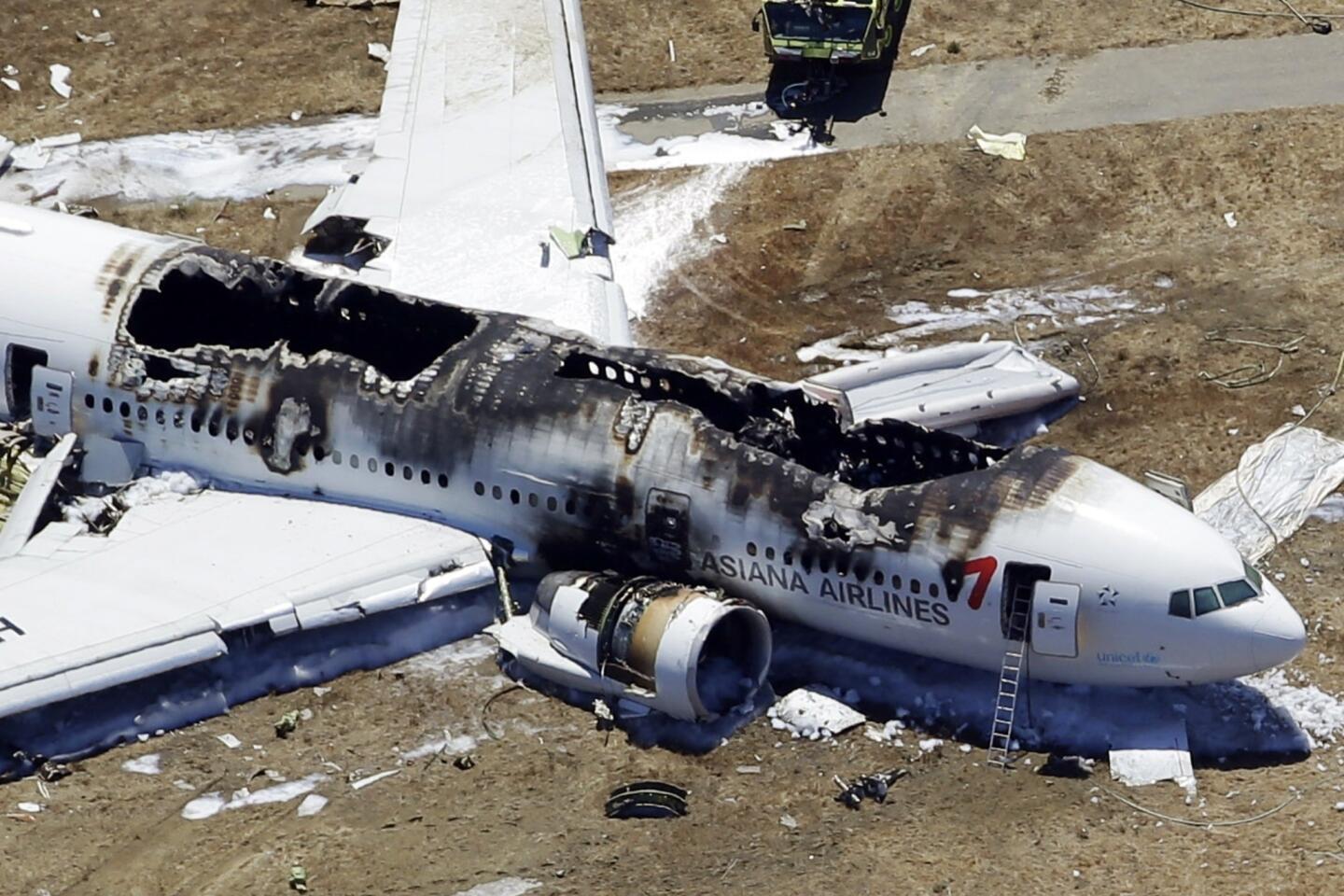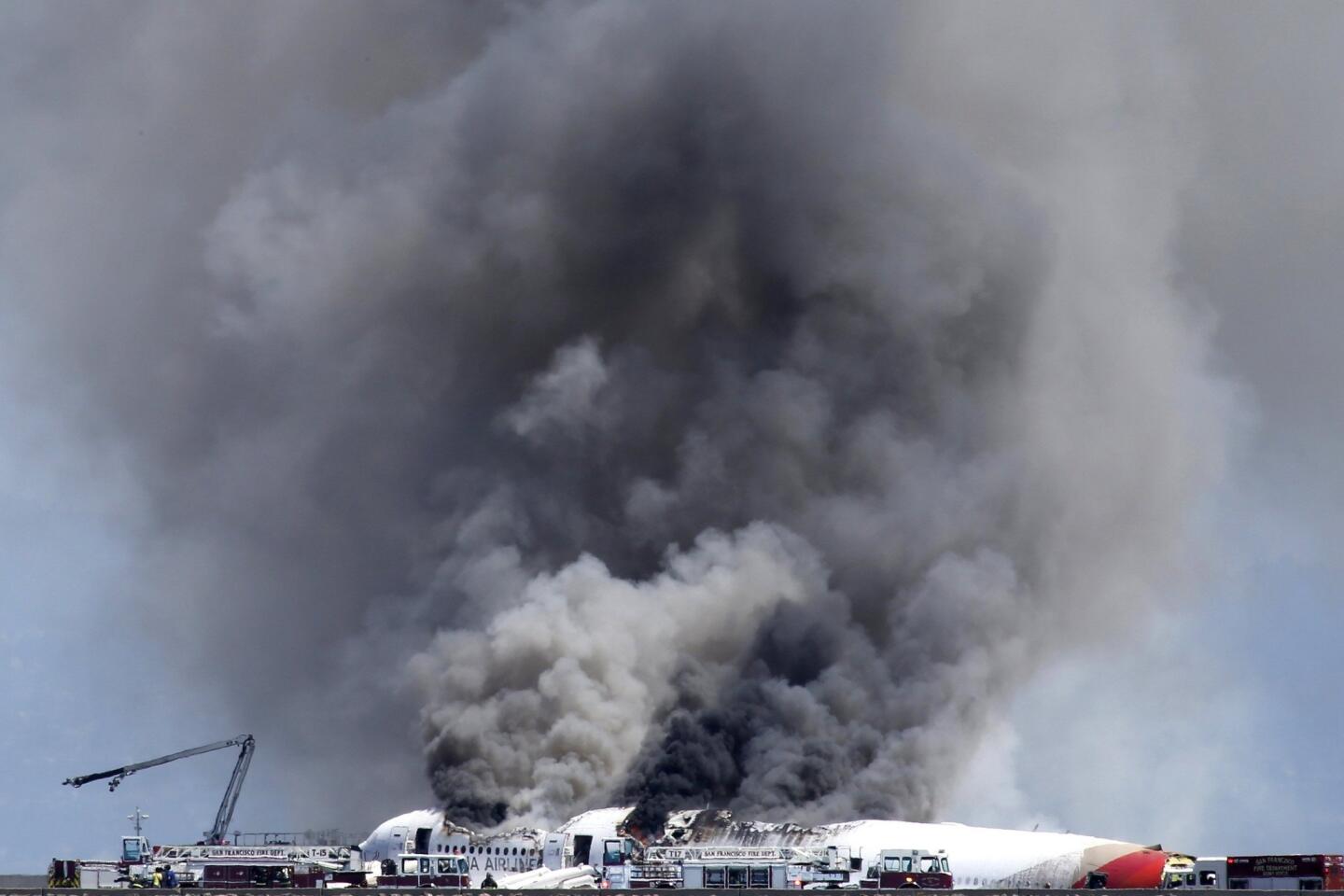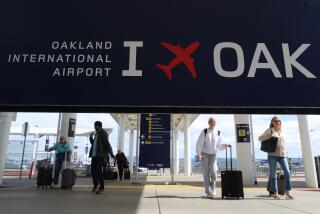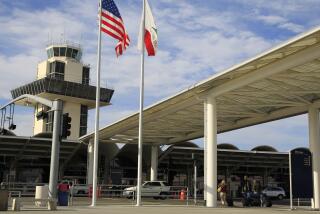South Korea bans Asiana flights to S.F. as punishment for 2013 crash
South Korean officials have banned Asiana Airlines from flying to San Francisco International Airport for 45 days due to last yearâs deadly runway crash.
The nationâs Ministry of Land, Infrastructure and Transport announced its decision to restrict the airlineâs flights to San Francisco on Friday, the Associated Press reported. Asiana plans to appeal the decision, according to media reports.
Doug Yakel, spokesman for San Francisco International Airport, told The Times they have received limited information about the decision and have not been told when it will be begin or even if it will ever happen.
As of Friday, the South Korea-based airline still had a flight on schedule at the airport.
Asiana officials said in a statement that the ministry suspended its Incheon-San Francisco route and, in response, Korean American groups have filed petitions for leniency with the ministry.
The decision, they said, was made âwithout considering inconvenience of passengers travelling the route or national interests at all.â
âIt is not implemented within the intent of the law,â the statement said.
Asiana said they will consider legal action against the decision.
The airline came under scrutiny after three people were killed on July 6, 2013, when Flight 214 clipped a sea wall and slammed into a runway at the airport.
More than 180 of the 307 passengers and crew members aboard the Boeing 777 were injured in the crash.
National Transportation Safety Board investigators said in July the pilots failed to manage their speed and altitude, relied on automatic throttle they didnât fully understand and mismanaged the landing.
It was the first major commercial aircraft accident in the United States in five years.
For breaking news throughout California, follow @VeronicaRochaLA. She can be reached at [email protected].
More to Read
Sign up for Essential California
The most important California stories and recommendations in your inbox every morning.
You may occasionally receive promotional content from the Los Angeles Times.
